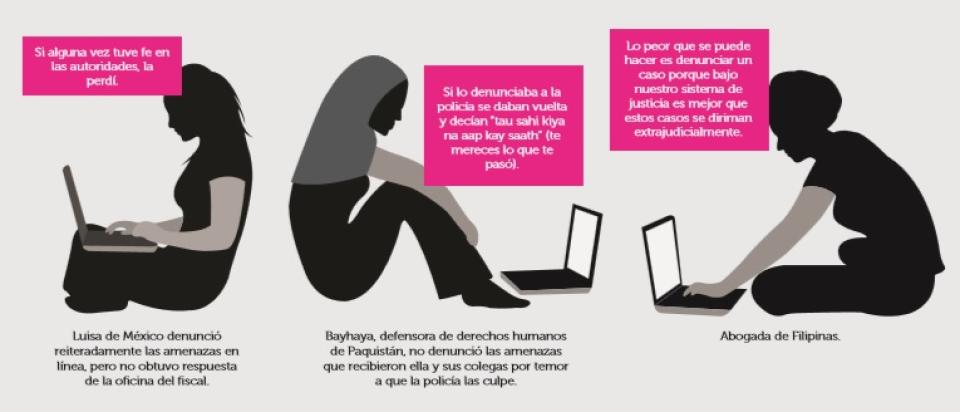
Ana Freitas, a Brazilian journalist and social network user, was threatened with rape and stalked close to her home after she published an article about sexism on chat sites and forums. In her article, Freitas – an expert on digital culture and behaviour, who has worked for the foremost media outlets in Brazil – did not mention specific persons or places; she only described the levels of machismo (male chauvinism) and misogyny experienced in some internet environments. In this interview with Florencia Goldsman for GenderIT.org, Freitas reflects on what happened, and declines to self-censor after the attacks. “My plans for 2015 are to continue writing about what interests me, to go out for runs and to enjoy Sao Paulo, my city,” she said.
Florencia Goldsman: What were your own experiences like in chat rooms and forums, before you did the research for the articles you wrote?
Ana Freitas: Generally, when I was a teenager and when I began my adult life, I sought out chat rooms and forums to discuss things I enjoyed, such as music and films. I noticed then that in those places, someone who identified herself as a woman would never be treated as a person. Either they were treated with awe and devotion, along the lines of “You’re a woman, you deserve everything you want,” or they were abused, with comments like the notorious “tits or GTFO!” (show your breasts or get the fuck out).
FG: What kind of people participate in these chat rooms and forums? Is there a “typical” profile?
AF: They are generally men aged 15 to 25 who fit the “nerd” stereotype: they are curious, and are avid fans of pop culture and technology. But that is just my personal observation, there are no studies in this field.
FG: What types of violence have you observed in the forums you have analysed?
AF: In general, violence manifests itself in machista or racist, and sometimes classist, discourse, and in cyber bullying.
FG: Can you offer any advice on safety for people – women – who are new to these environments?
AF: Depending on the environment, frankly, I can’t think of any useful advice, because the situation is utterly unacceptable. I would not stay in them. The only way to be safe (in the most hostile chat rooms and forums) is not to identify yourself as a woman. In other cases, forums can be quite friendly to women and girl users, but there is some very machista material going around.
FG: What psychological consequences did you experience after the attacks that were perpetrated on you?
AF: I am definitely more paranoid. I am more careful about my privacy, about the personal details about my life that I reveal, whether online or offline. During the period when the threats were most intense, I struggled with fear, insecurity and anxiety.
FG: Did you come up with any creative strategies to deal with the violence you experienced?
AF: I went out with friends a lot, seeking distraction. But I don’t think it’s time to turn the page on it yet – I’m still involved with issues regarding the research, and the questioning process and so on.
FG: After what happened, have you self-censored yourself? Have your views on freedom of expression changed?
AF: No, not in that sense. I have not stopped saying what I think needs to be said, and I still feel very empowered – I always did, but I’m probably even more empowered now.
FG: Can you imagine concrete action towards building a feminist internet that women can use without experiencing violence?
AF: The first step is to take a firm stance. Claiming a space, as women, on social networks is in itself a feminist act that helps to demythologise what feminism is and to disseminate the need for equality. The second step is more difficult: an internet without violence against women will only be possible in a world without violence against women.
- 5064 views







Add new comment